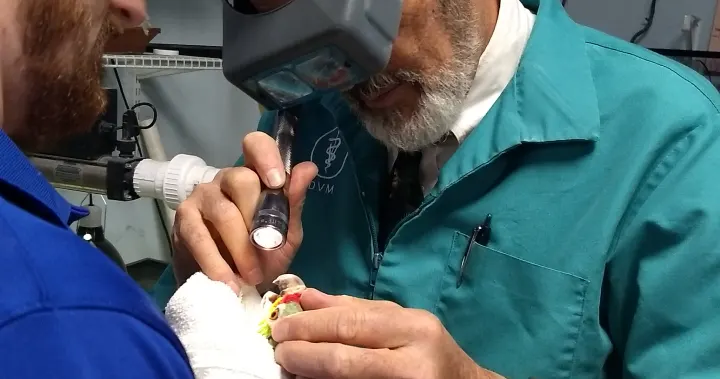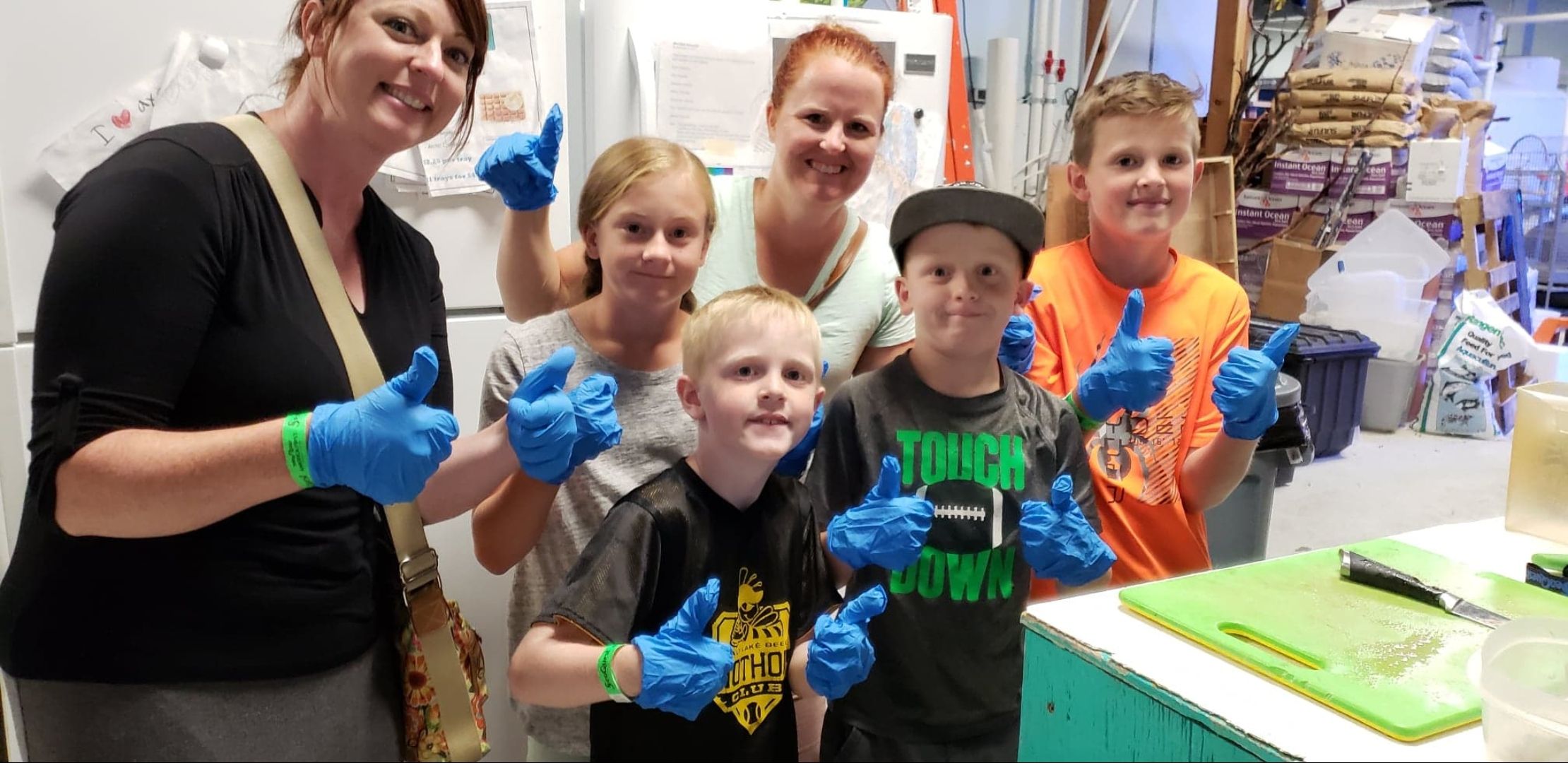At SeaQuest, we believe in a mission deeply rooted in respect for the marine life and ecosystems we showcase. Our commitment to animal welfare is as vast as the oceans we represent, positioning us as leaders in the ethical treatment and care of aquatic and terrestrial animals. This commitment is not just about maintaining the status quo; it’s about pushing forward, acknowledging areas of concern, and dedicating ourselves to transparency and continuous improvement in all aspects of animal care.
SeaQuest’s Commitment to Animal Care
Our approach to animal care is holistic, encompassing the physical and psychological well-being of the creatures under our stewardship. Understanding that each species has unique needs, we have developed comprehensive animal welfare programs prioritizing habitat simulation and enrichment activities. These programs are designed not just to mimic the natural environments of our animals but to engage them in activities that stimulate their natural behaviors and promote physical health and mental well-being.
Partnerships with wildlife conservation organizations are a cornerstone of our commitment to animal care. By collaborating with experts in marine biology and conservation, we ensure that our practices benefit the animals in our care and contribute to broader conservation efforts worldwide. These partnerships enable the exchange of knowledge and resources, enhancing our capacity to provide the best possible care for our animals.
Staff training and development programs ensure our team has the latest animal care and welfare knowledge and techniques. From frontline staff to our Husbandry Team, ongoing education is a critical component of our operational philosophy, ensuring that every team member is a knowledgeable advocate for the animals they care for.
Comprehensive Animal Welfare Programs
Our rigorous habitat simulation and enrichment approach evidences our commitment to animal welfare. Creating environments that closely resemble the animals’ natural habitats provides a living space that encourages natural behavior and minimizes stress. Enrichment activities are tailored to the specific needs of each species, promoting physical activity, cognitive engagement, and social interaction.
Veterinary Care and Animal Health
The health and well-being of the animals at SeaQuest are of paramount importance. Animals have a designated veterinarian, daily supervision for health, routine checkups, and screenings for possible illnesses. Dietary supplements, customized diets for optimal health, and specialized health care are provided for each animal in our care. We meet the standards set forth by the USDA and comply with local wildlife regulations.
Veterinary care at SeaQuest is available around the clock, with a team of experienced veterinary professionals ready to respond to any situation. Success stories of treatments and rehabilitations at SeaQuest are a testament to the effectiveness of our veterinary care and animal health programs, showcasing our commitment to providing a safe and nurturing environment for all our residents.
Our dedication to animal care and welfare reflects our broader mission to educate the public about the importance of marine conservation and inspire a new generation of ocean advocates. We are setting a standard for ethical and compassionate stewardship of marine life through transparency, continuous improvement, and a steadfast commitment to the animals in our care.
Ethical Acquisition of Animals
At SeaQuest, we prioritize the ethical acquisition of animals, ensuring that our practices align with our commitment to conservation and animal welfare. Our processes for obtaining animals are meticulously designed to prioritize rescue operations and ethical sourcing, reflecting our dedication to the well-being of marine life and ecosystems.
Rescue operations form the backbone of our animal acquisition strategy. We actively participate in rescue efforts, providing a sanctuary for animals that have been injured, abandoned, or otherwise in need of care. Our facilities serve as a haven for these animals, offering them a second chance at life in a safe and nurturing environment. Through these rescue operations, we contribute to the welfare of individual animals and raise awareness about the challenges facing marine life.
Ethical sourcing is another critical aspect of our animal acquisition process. We collaborate with reputable suppliers who adhere to the highest animal welfare and conservation ethics standards. This approach ensures that any animals we acquire from sources other than rescue operations are obtained in a manner that respects the natural world and contributes to species preservation.
Daily Operations and Animal Welfare
SeaQuest is committed to ensuring each animal under our care experiences the highest quality of life possible through meticulous attention to feeding, nutrition, habitat cleanliness, overnight care, and staff qualifications. Our approach, centered on both animal welfare and educational engagement, addresses criticism and adheres strictly to regulatory standards.
Feeding and Nutrition
We ensure that all animals receive tailored diets, emphasizing variety and nutritional balance. Our feeding routines are carefully designed to mimic natural feeding habits, providing the optimal mix of vitamins, minerals, and energy needed for each species. Feeding schedules vary, with some animals fed multiple times a day and others on a more spaced schedule, depending on their natural behaviors and nutritional requirements.
How Often Are Animal Enclosures Cleaned at SeaQuest?
Routine cleaning schedules are a cornerstone of our daily operations, with different types of enclosures cleaned daily and more thorough cleanings conducted weekly. This focus on hygiene and health extends to specialized cleaning protocols for each species, utilizing safe, non-toxic cleaning agents and maintaining correct habitat conditions, such as pH levels in aquatic tanks.
Our efforts extend to meeting or exceeding all regulatory requirements, ensuring our practices provide clean habitats and comply with regulatory standards for animal welfare. We meet or exceed the rules set forth in the Animal Welfare Act and the regulations specific to Texas, California, Colorado, New Jersey, Virginia, and all states in which SeaQuest operates. Continuous monitoring and quality control ensure that enclosure conditions remain pristine, using regular staff checks and technology to keep environments optimal for animal well-being.
How Are Animals Cared for Overnight at Seaquest Facilities?
Overnight, our facilities are staffed by dedicated professionals monitoring the health and safety of the animals, complemented by surveillance systems to address any issues promptly. Emergency care protocols ensure that veterinary care is readily available, with rapid response systems in place for any health concerns. Comfort and security measures, including adjusting lighting and temperature to mimic natural cycles, provide a restful environment accommodating nocturnal behavior patterns.
Staff Qualifications and Training
SeaQuest staff are highly qualified in animal care and welfare, with ongoing training and certification programs ensuring they remain at the forefront of best practices in animal handling. This commitment to professional development guarantees that our team is knowledgeable and capable, ready to provide the highest level of care.
Members of our leadership and National Director staff have degrees in Marine Biology and Zoology, as well as Veterinary Sciences and Biogeography.
Our marine team members have certifications in AALSO (Aquatic Life Support Systems), and our Wildlife team members recently received their Sloth Care Certifications.
Interactive Animal Experiences
Interactive experiences at SeaQuest are designed with animal welfare as a priority. Animals involved in these experiences are given frequent breaks, and their stress levels are closely monitored to ensure their well-being. Modifications to programs are based on animal behavior and welfare assessments, ensuring that our interactive experiences are enjoyable for both animals and guests while maintaining the highest standards of care and respect for the animals involved.
Despite criticism from animal rights activists, SeaQuest maintains that hands-on learning experiences are invaluable in educating guests about conservation. Our approach has proven effective in creating a lasting interest in environmental and species protection among our visitors. Behind-the-scenes tours offer insights into the extensive care and maintenance practices that ensure each animal thrives.
SeaQuest’s Commitment to Transparency and Continuous Improvement
This dedication underlines our mission to provide exceptional care for the animals within our facilities and to engage and educate our visitors and the broader community about the importance of marine conservation and responsible wildlife stewardship.
Regular Audits and Assessments
We uphold SeaQuest’s highest animal welfare standards through regular internal and external audits. These assessments occur at scheduled intervals throughout the year, covering all aspects of animal care, habitat conditions, and operational practices. Inspections, both scheduled and unannounced, are very frequent. Our experience with regulators has always been positive, accountable, and collaborative. Here are some of the regulators who consistently inspect our locations:
- USDA (United States Department of Agriculture)
- Department of Fish and Wildlife (State Agencies)
- AHFSS – Animal Care Program – CDFA
- Utah Community Animal Response Program
- Minnesota Board of Animal Health
- New Jersey Animal Care & Control Resources
- The Virginia Department of Agriculture and Consumer Services (VDACS)
Inviting external experts and organizations to conduct these evaluations ensures an unbiased review of our operations, aligning with our commitment to transparency and excellence in animal welfare. Recent assessments have led to several enhancements in our facilities and care routines, openly sharing findings with our visitors. Any issues identified are promptly addressed, with steps taken to ensure continuous improvement in our practices and the well-being of our animals.
Community and Visitor Engagement
Incorporating visitor feedback into our animal welfare practices is a crucial aspect of our approach to continuous improvement. We actively encourage our guests to share their observations and suggestions, using this valuable input to refine and enhance our operations. Community outreach programs aimed at educating the public about conservation and the natural habitats of our animals play a significant role in our mission. Some of the programs and nonprofits we have partnered with include:
- Make-A-Wish
- Brave Young Hearts
- American Red Cross
- Salvation Army
- MYSIS – Minority Youth Succeeding in Science
Through school programs, workshops, and partnerships with conservation organizations, we strive to foster a deeper understanding and appreciation of marine life and ecosystems, demonstrating our commitment to caring for the animals within our facilities and contributing to species conservation in the wild.



